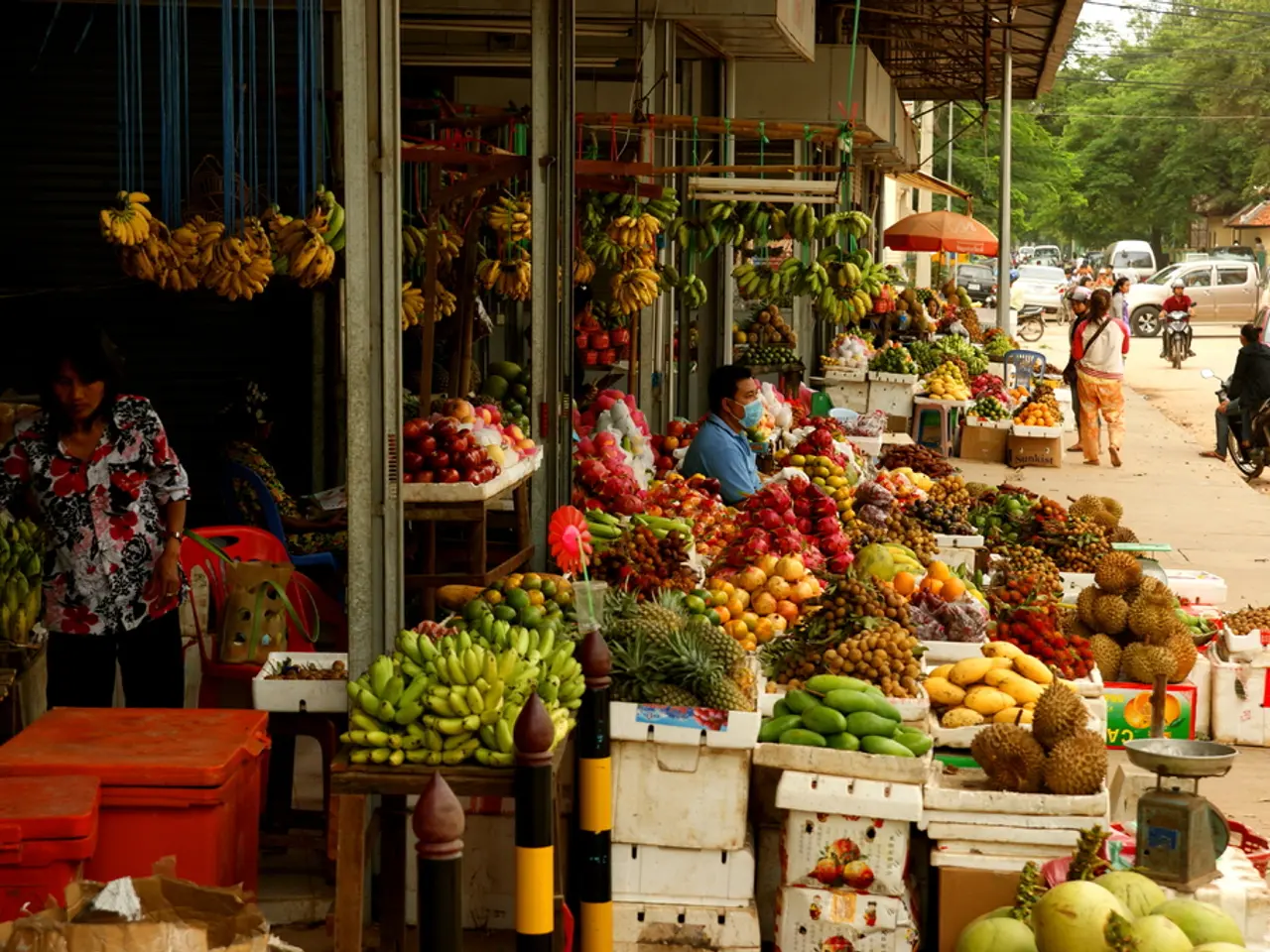EU Proposes Regulation on Milk and Dairy Products Pricing within the EU
New EU Deforestation Regulation to Impact Supermarket Prices and Product Availability
Starting from December 30, 2025, a new regulation known as the EU Deforestation Regulation (EUDR) will come into effect, aiming to ensure that commodities sold or exported within the EU are deforestation-free and legally sourced. The regulation will initially apply to large and medium-sized companies, with micro and small enterprises following suit by mid-2026.
The EUDR targets seven key commodities associated with deforestation: cattle, cocoa, coffee, oil palm, rubber, soya, and wood. For wood products, the rule is even stricter, requiring no sourcing from forests degraded after the cutoff date.
By enforcing traceability and transparency in supply chains, the EUDR aims to prevent EU consumption from driving global deforestation and forest degradation, support the EU’s climate and biodiversity goals, and promote legal compliance with local land use and environmental laws in source countries.
Potential impacts on supermarket prices and product availability starting in 2025 include higher costs for compliant sourcing, supply chain adjustments, increased transparency, and consumer choice. Businesses will face increased administrative and monitoring costs to ensure products comply with deforestation-free criteria, which could be passed onto consumers, potentially raising prices for affected goods. Suppliers in regions where deforestation or forest degradation post-2020 is prevalent may lose access to EU markets until they can certify sustainable supply, which could reduce availability or variety of some products in supermarkets.
On the other hand, the increased transparency will allow consumers to make informed decisions favoring sustainable products. However, experts believe that the new regulation will have consequences for consumers, such as a decrease in the selection in supermarkets, struggles for smaller manufacturers, and potential shortages of popular food items if the transition in supply chains is delayed.
The bureaucratic effort under the EU Deforestation Regulation is enormous, with companies required to document their supply chains without gaps and prove that their products are deforestation-free. Industry representatives and traders warn of a possible price shock in supermarkets due to the new rules, and the costs for the increased bureaucracy are likely to be passed on to consumers.
While the EUDR promotes important environmental goals by reducing deforestation-driven commodities, it is expected to create supply chain challenges that might lead to increased prices and more limited product availability in supermarkets from 2025 onward, especially for commodities heavily linked to deforestation.
It is important to note that the EU Deforestation Regulation affects forests in Germany, not just tropical rainforests. Additionally, the list of affected raw materials under the EU Deforestation Regulation is set to be expanded in the future.
Experts and industry representatives are urging caution and preparation as the deadline for companies to comply with the EU Deforestation Regulation approaches. Dirk Heim, head of sustainability for the Rewe Group's product range, states that it is "not possible to seriously predict" how the regulation will affect prices in supermarkets at present. Martin Schüller, an expert from Fairtrade Germany, states that the implementation of the EU Deforestation Regulation is extremely complex and causes high costs. Jörg Krämer, chief economist of Commerzbank, criticizes the bureaucratic effort, stating it is the main problem for companies.
In conclusion, the EU Deforestation Regulation is a significant step towards worldwide forest protection, but it also brings challenges for businesses and consumers alike. As the deadline for compliance approaches, it is crucial for companies to prepare for the increased bureaucracy and potential supply chain disruptions, and for consumers to be aware of the potential impacts on product availability and prices.
- The EU Deforestation Regulation, starting from December 30, 2025, aims to prevent EU consumption from driving global deforestation, especially for commodities heavily linked to deforestation such as wood, oil palm, soya, and cattle.
- Under the EUDR, businesses will face increased costs for compliant sourcing, supply chain adjustments, and administrative efforts to ensure their products meet deforestation-free criteria, which could potentially raise prices for affected goods.
- The regulation also suggests that suppliers in regions with prevalent deforestation or forest degradation post-2020 may lose access to EU markets, potentially reducing the selection and variety of some products in supermarkets.
- Despite the challenges, the increased transparency provided by the EUDR will empower consumers to make informed decisions, favoring sustainable products, and contribute to the EU's climate and biodiversity goals.




